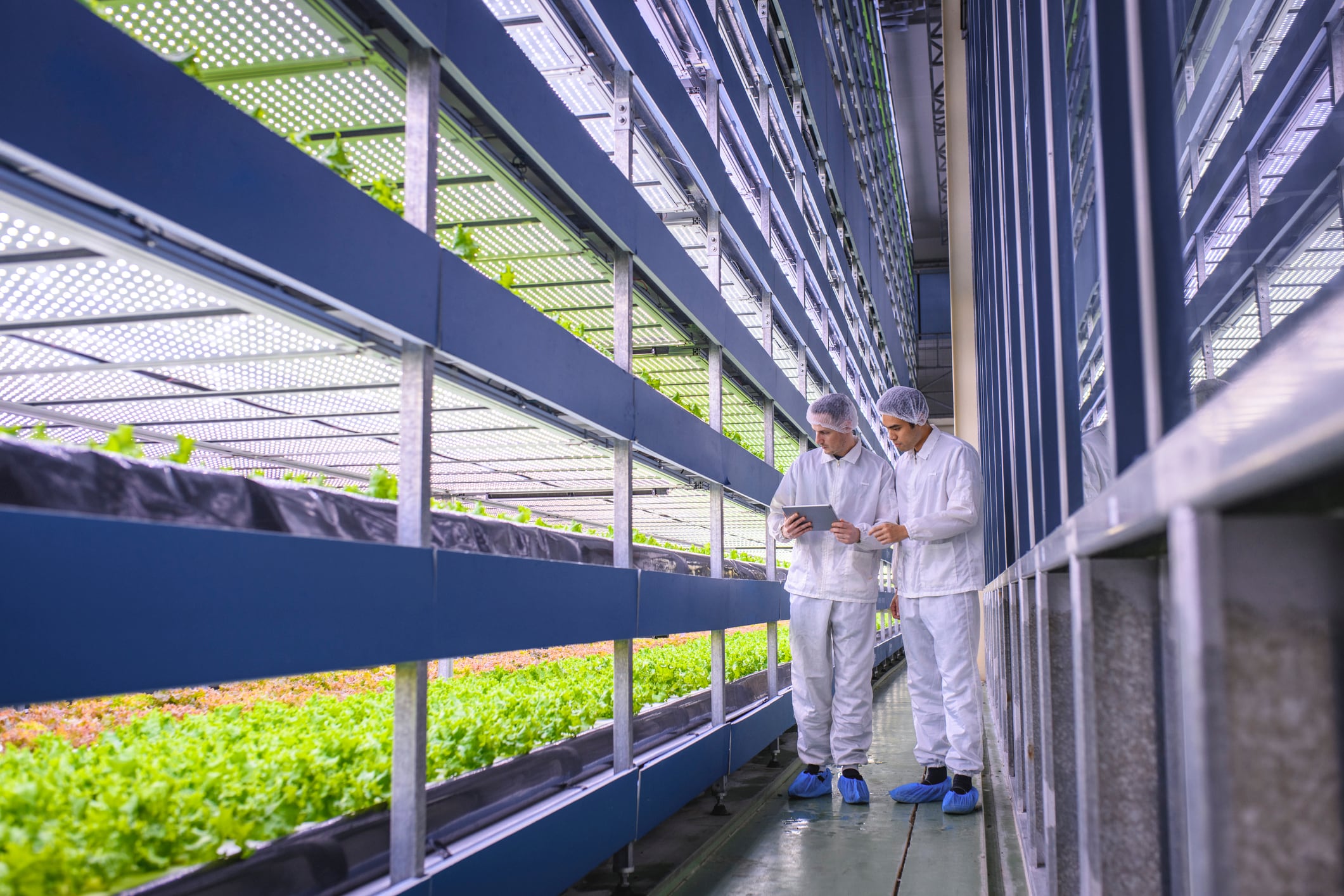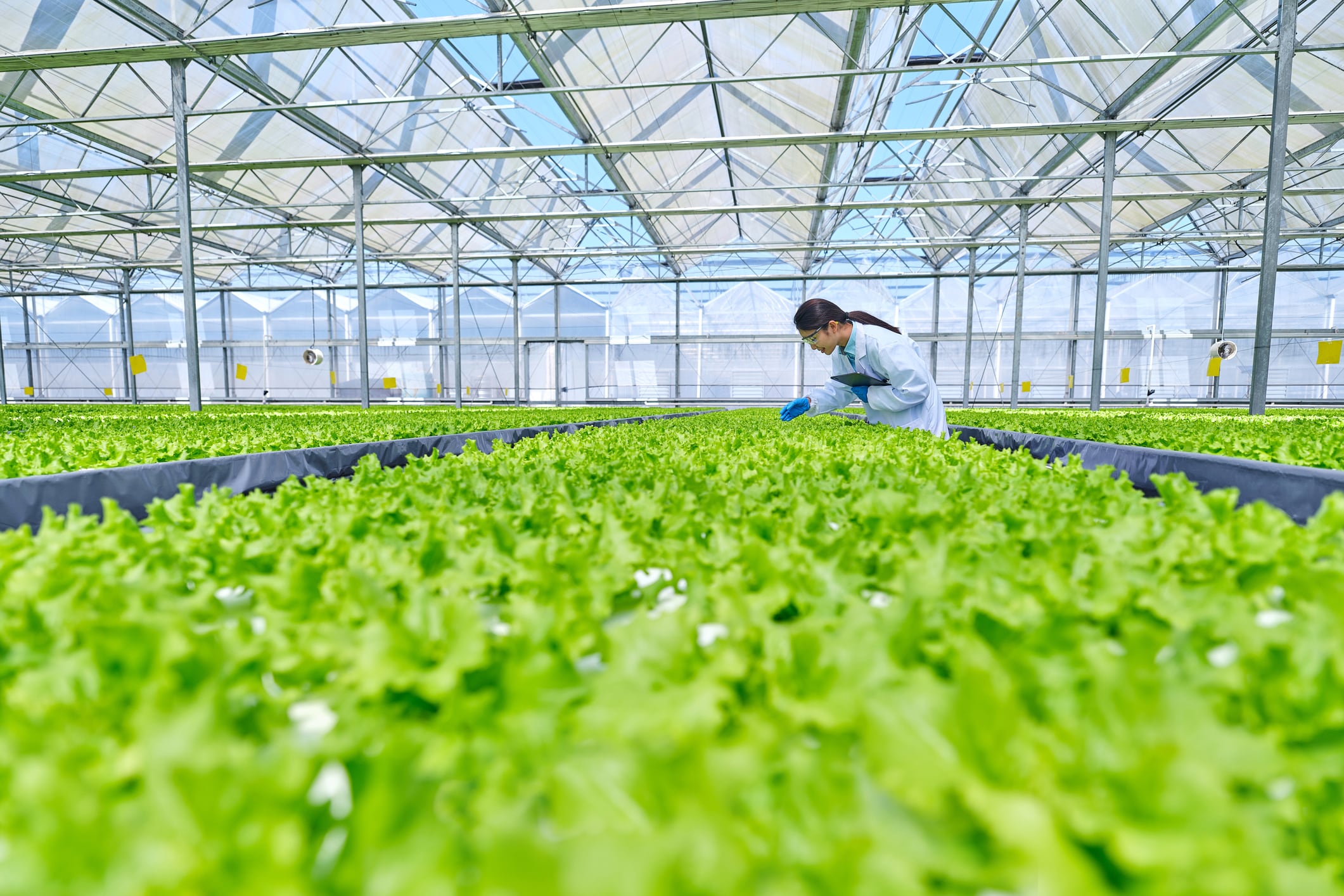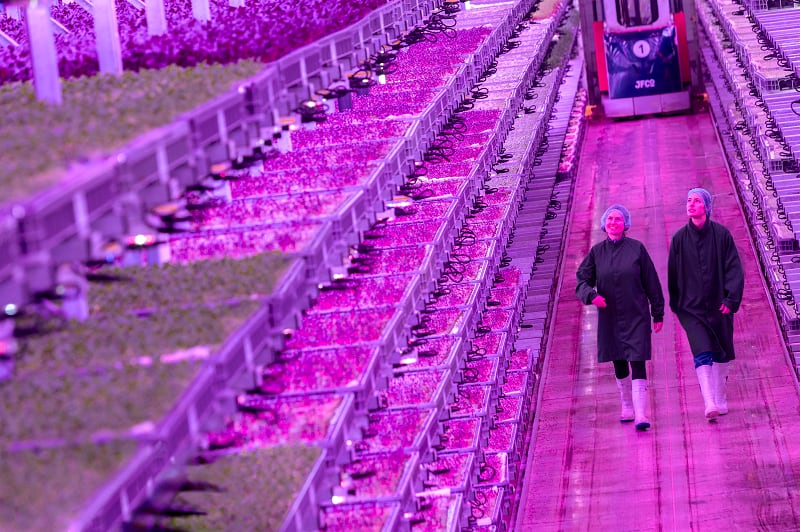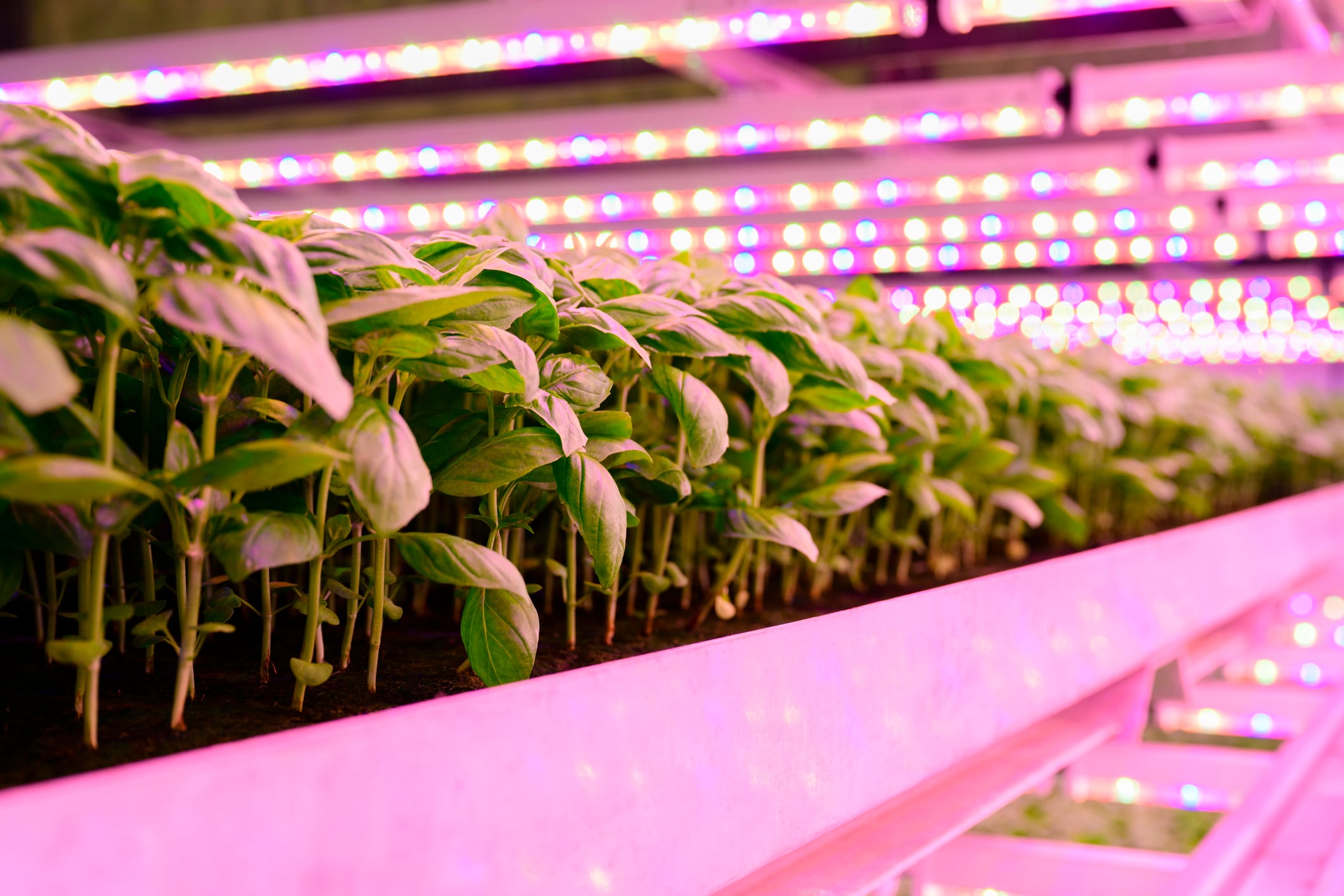The Fresh Everleaf range is grown without pesticides or herbicides and is free from human touch until opened, “maximising freshness, quality, crispness and flavour”.
Planet Farms produce is moved from harvest to bag in under a minute using an automated growing system. The growing method also uses 95% less water, 93% less soil occupancy and 96% less fertiliser than in traditional agriculture, the brand claimed.
The leaves can stay fresh in the fridge for at least eight days and there is no need to wash them, it added.
In April 2025 it announced an investment over £25m into a UK-based facility that will supply Waitrose directly. At 20,000 sqm of growing capacity, it will be one of the largest vertical farms in the world.
How is Planet Farms bucking consolidation and re-evaluation in vertical farming?
The news comes as some companies in the sector have struggled to prosper.
Last month, Ocado-backed vertical farmer Jones Food Company was placed into administration. Future Crops, Aerofarms, Agricool, Upward Farms and US company Plenty are other companies that have ceased production or restructured.
Daniele Benatoff, CEO and co-founder of Planet Farms, pointed to the company’s funding structure as one of the reasons behind its success.
Planet Farms has raised over $140 million in total capital, making it one of the best-funded vertical farming start-ups in Europe, and primarily backed by institutional and infrastructure capital rather than traditional venture capital.
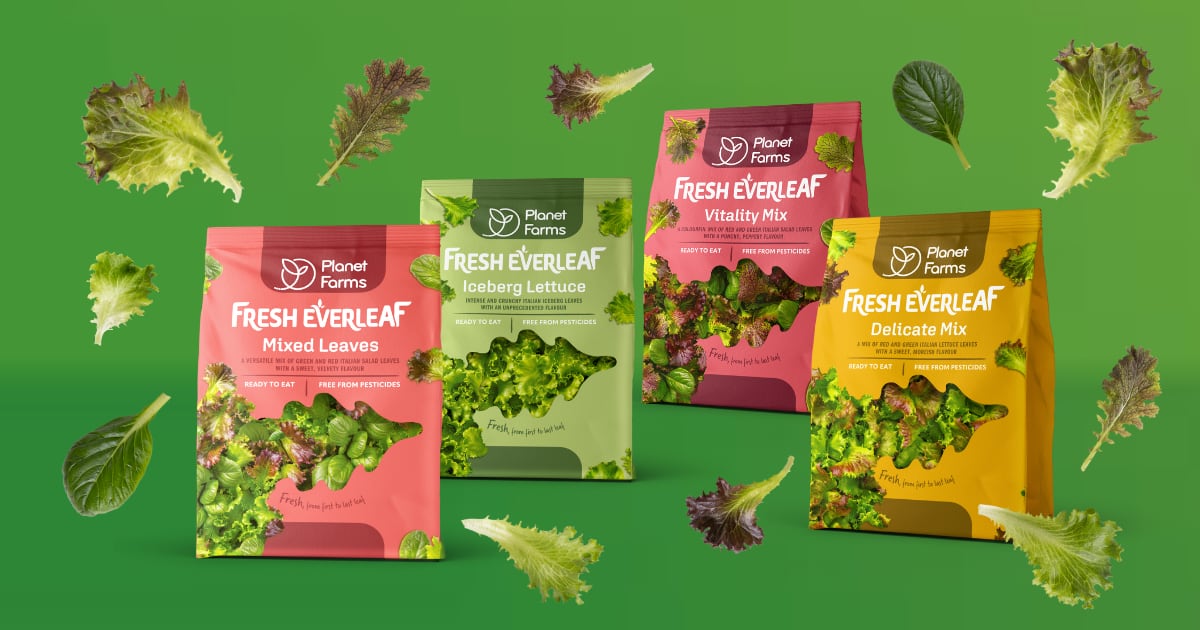
Its most significant recent funding comes from a joint venture with Swiss Life Asset Managers, an institutional investment fund, which has committed up to €125 million to support the development and construction of indoor farming facilities across Europe, the Middle East, and Africa.
“It’s important to recognise that while some vertical farming companies have struggled, others are thriving,” Benatoff told AgTechNavigator. “That’s typical of any emerging tech space: it takes time for the strongest models to prove themselves.
“At Planet Farms, we’ve focused relentlessly on execution, scale, and quality. We invested heavily early on — in infrastructure, technology, and operational efficiency — knowing that scale is key to commercial viability.”
A “major factor” in its next phase of growth is its industrial joint venture with Swiss Life Asset Managers, he explained. “This partnership gives us the resources to scale responsibly and enter new markets — including the UK, where we’ll launch a new facility in 2026.
“The sector has been challenged by tight capital markets, but our strategy has always been to build a strong business with a clear path to returns — and to demonstrate that we’re a long-term solution for food security and supply chain resilience.”

The company’s Italian culinary heritage is also a factor in Waitrose’s commitment to vertical farming, he added.
“We began with leafy greens and herbs for speed and predictability. But crucially, we bring something unique to the category: the flavours, quality, and freshness rooted in Italian culinary heritage.
“We’re not just growing food — we’re sharing a piece of Italy with the world, in a way that’s consistent, sustainable, and scalable. Our greens are grown in a controlled, pesticide-free environment — and the very first person to touch the product is the consumer.”
‘Our vision goes beyond agriculture’
Beyond food, the company is exploring the potential of vertical farming for crops like cotton and coffee, which are becoming harder to grow in open fields due to climate stress and water scarcity. “These aren’t yet commercially available, but our R&D is showing strong promise,” Benatoff said.
“Ultimately, our vision goes beyond agriculture – it’s about designing a better, more resilient production model. Whether it’s a basil leaf or a cotton fibre, we’re rethinking how essential goods are grown and delivered: without pesticides, with minimal land use, and with full control over quality and sustainability. With less impact and more care, we’re building a system that’s better for people, the planet, and the future of food.”


